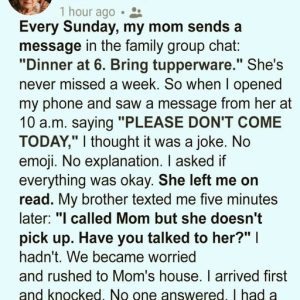I thought I had done everything right. The kids were smiling, backpacks ready, and the kitchen smelled like pancakes instead of chaos. I had gotten up early, packed lunches with little notes inside, and even braided our daughter’s hair after watching a quick tutorial. To me, one coffee mug left behind didn’t seem like much, not compared to the effort I’d put in. But when she looked at that mug, her face changed. Not angry — just tired in a way I suddenly understood.
She didn’t scold me. Instead, she spoke quietly, “This is what it feels like every day. Doing everything, and the one thing that’s not done becomes the focus.” She wasn’t talking about the cup. She was talking about the years she carried the mental load — remembering every appointment, planning meals, organizing clothes, signing school forms, and being the one everyone relied on without being thanked for it. My effort was good, but it was new. Her effort had been constant and often unnoticed.
In that moment, I realized she didn’t want perfection — she wanted partnership. Not just the big gestures, but the everyday noticing, the invisible tasks, the shared responsibility. I apologized, not for the cup, but for not recognizing sooner how much weight she had been carrying alone. Together, we talked about responsibilities and how to split not just chores, but the thinking behind them.
Now, mornings are still mine, but not as a favor — as my role. She rests, I work through the routine, and when something is forgotten, we laugh instead of blame. That coffee mug taught me more than any argument could. Real support isn’t about showing you can help — it’s about choosing to help every day, even in the smallest ways. And in those little moments, our home feels more like a team than ever before.





